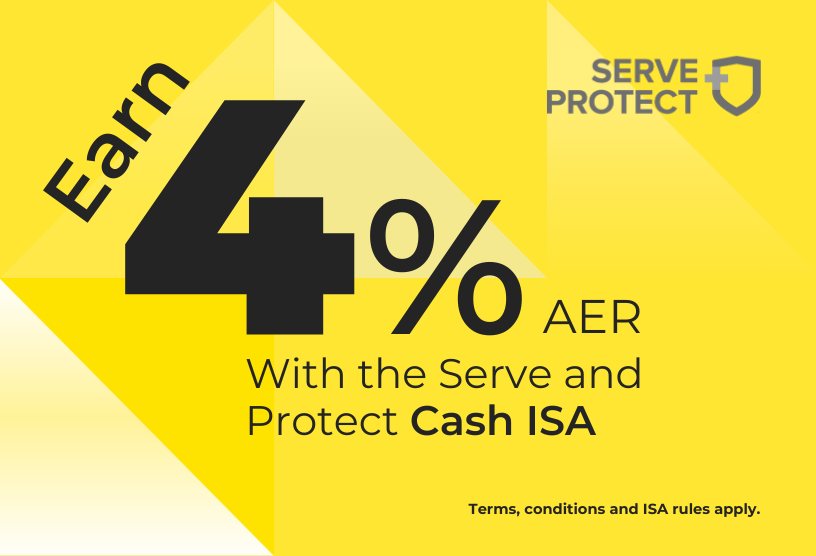If you’re employed, your employer must have a workplace pension scheme in place. If you meet the following criteria, your employer will enrol you into their pension scheme and make payments into your pension:
- You’re a UK resident, usually working in the UK
- You’re aged between 22 and the state pension age (check your state pension age)
- You earn at least £10,000 a year
In your pension, there’s a minimum total contribution requirement of 8%. This is usually built up of your employer contributing at least 3% and you, as the employee, contributing the remaining 5%. Whilst 3% is the legal minimum requirement, many employers may choose to contribute more.
If you’re under the age of 22, you can ask to be enrolled into a pension scheme. Your employer must let you join the scheme if you’re between 16 and 74 years old. At a young age, retirement may seem like a long way away, but it helps you to start saving for a more comfortable life at an older age and may mean you might even be able to retire earlier than planned.
An employer is unable to unfairly dismiss or discriminate against you for being in their workplace pension scheme, nor can they encourage or make you opt out.
What happens when I’m auto-enrolled?
Once you’ve been auto-enrolled, your employer will write to you explaining:
- The date you entered the scheme
- Details about the scheme, including who runs it
- How much they’ll contribute and how much you’ll be paying
- How you can leave the scheme
- How tax relief applies to you
When will I receive my pension?
Pension schemes usually set an age when you can access your pension, normally between 60 and 65 years old, but the earliest age is 55 years old.
In some circumstances, including if you’re retiring early because of ill health, you may be able to access your money before you turn 55.
When you reach your pension maturity date, you can take 25% of it tax-free as a lump sum and you’ll pay income tax on the rest as you receive it monthly.
If you try to take money out of your pension before you turn 55, you may pay tax of up to 55% of the pension value.
Making debt more affordable
If you are struggling with debts call us on 0800 072 1206. We’re open from 8am – 8pm Monday to Friday and 9am – 3pm on Saturdays.
Alternatively, you can visit our www.payplan.com/police to speak to us via live chat or for more information.
Get Back on Track with BudgetSmart
Ignoring money troubles won’t make them go away. The longer you wait, the fewer options you have. Missed payments can lead to late fees, credit score damage, rising debt and even legal action. Before you know it, small struggles can snowball into serious financial stress.
BudgetSmart helps you take action now. Find hidden savings, adjust your spending and get back in control before things spiral. Don’t wait for the next overdue notice.
How does BudgetSmart work?
BudgetSmart is split into categories that will help you to review each element of your household budget.
Simply choose one of the categories for a breakdown of easy actions you can take that may help to cut costs, improving your monthly budget. You can also search for the expense that you’re looking to save money on in the search box.
As an example, if you’re worried about how much your food shopping bill has increased, you can use this category to make small changes to the way you shop, which could add up to big savings over time.
In this category, you’ll find:
- Ways to save money at the supermarket
- Vouchers and free meals may be available to you
- Coupons, cashback, loyalty cards and apps
- Recipe ideas
- And much more
Increase your income with BudgetSmart
Use the Income Maximisation section to check you’re receiving all the income you’re entitled to.
In here, there’s a handy benefits checker, along with information about all the potential benefits you may be able to receive.
Alongside the benefits checker, there’s also tips on other ways to increase your income including:
- Cashback and reward schemes
- Creating a budget and shopping tips
- Discount schemes
Making debt more affordable
If you are struggling with debts call us on 0800 072 1206. We’re open from 8am – 8pm Monday to Friday and 9am – 3pm on Saturdays.
Alternatively, you can visit our www.payplan.com/police to speak to us via live chat or for more information.
Motor Source Group – June Offers
Latest offers from Motor Source Group.

Uniform Mortgages Surgery – June 2025
Worried About Mortgage Interest rates?
Virtual event on 13th June 2025 at 10:30 – 15:30 With Uniform Mortgages
No obligation – Independent Mortgage Advice clinic is available for:
- Purchasing – First Time & Subsequent Buyers
- Buy To let – Purchase & Remortgaging
- Residential – Remortgaging
Uniform Mortgages can also secure a rate up to 6 months in advance – so if you have a mortgage now and your fixed rate will be expiring within 6-7 months then please contact us on the below details to speak to a Mortgage Advisor today.
To book an appointment please call 01767 316626 or email info@uniformmortgages.co.uk with your requested date, time and best contact number.
If you are interested but unable to attend the clinic you can also arrange an appointment at a mutually agreeable time with the Uniform Mortgages team.
Motor Source Group £500 Give Away
Calling all van drivers! We’re giving away a £500 pre-paid Mastercard to one lucky campervan, motorhome or van driver.
Pop into branch, or scan the QR code below to enter.

How are government-funded childcare hours changing?
From September 2025, working parents of children under the age of five will be entitled to 30 hours of government-funded childcare a week.
Currently, 15 hours of government-funded childcare is available for all children from the age of nine months. 30 hours of government-funded childcare is available for children aged three to four, if parents are working.
What are funded childcare hours?
Funded childcare hours are government-subsidised hours of childcare for parents of young children. They’re available to be used in registered childcare settings. The UK government provides these hours to support families by providing their children with early years education in a structured environment.
How do I qualify for these hours?
To qualify, you need to be working or starting a new job, on sick or annual leave, or on shared parental, maternity, paternity or adoption leave. The amount you earn must be at or more than the value of the National Minimum Wage or Living Wage for 16 hours a week on average.
You don’t qualify if your adjusted net income is over £100,000 a year. Adjusted net income is your total taxable income before any Personal Allowances and certain tax reliefs are deducted such as, trading losses, donations to charities through Gift Aid and pension contributions.
If you’ve been self-employed for less than 12 months and you earn less, you may still qualify. Income that doesn’t count includes dividends, interest, income from property investments or pension payments.
You apply via the Government website to receive your childcare code, which you need to give to your registered provider. When you have your account set up and the code is active, you need to reconfirm your eligibility every three months.
What other financial support is available for parents?
- Tax-free childcare – You can get up to £500 every three months (up to £2,000 a year) for each of your children to be used to help with the cost of registered childcare. This goes up to £1,000 every three months if a child is disabled (up to £4,000 a year). It can be used in addition to funded childcare hours.
- Child Benefit – You can receive Child Benefit if you’re responsible for raising children under the age of 16, or under 20 if they stay in approved education or training. From April 2025, rates increased as follows:
- First or eldest child: From £25.60 a week to £26.05 a week
- Any additional child: From £16.95 a week to £17.25 a week
What you can do next
If you are struggling with debts call us on 0800 072 1206. We’re open from 8am – 8pm Monday to Friday and 9am – 3pm on Saturdays.
Alternatively, you can visit our www.payplan.com/police to speak to us via live chat or for more information.
If you’re behind on regular payments or falling into debt, BudgetSmart has hundreds of easy actions you can take to improve your monthly budget and bring you back onto the path to clearing your debts.
Water Saving Week – How can I get involved?
The ninth annual Water Saving Week, organised by Waterwise, is taking place between the 12th and 16th May 2025.
As a country, our water usage has continued to rise each year. In total we each use about 150 litres every day, and this is likely to keep going up.[1]
This year, Waterwise are celebrating with the theme ‘Small Waste, Big Impact: Be a Water Saving Hero’, and are asking people to become real-life water-saving heroes.
How can I save water in my home?
- Save water when washing your clothes by only putting the washing machine on when you have a full load. This maximises water efficiency and reduces the number of washes you need to do. A full load uses less water per item, so it’s the smart way to save. Many machines offer water-saving cycles, using less water and energy whilst still getting your clothes clean.
- Keep an eye on your tap usage. Turn off the tap whilst brushing your teeth or washing dishes. A running tap wastes over six litres per minute[2] so every second counts. A low-flow aerator can help reduce water flow without sacrificing water pressure – an easy, inexpensive way to make your taps more efficient.
- Trim off a minute and save litres on your shower usage. Why not set a timer or play your favourite song to encourage you to cut down on your shower time, saving litres of water in the process?
- Consider your dishwasher usage. Like with the washing machine, always wait for a full load before running your dishwasher. Modern dishwashers are water-efficient, but they’re designed to work best when they’re packed to capacity. Most dishwashers today are powerful enough to clean dishes without needing to pre-rinse. Scrape off large food scraps, but let your dishwasher do the rest. Check if your machine has a water saving mode too.
- Find and fix sneaky leaks. Regularly inspect your taps, pipes and toilets for any signs of leaks. Even small, slow leaks can waste litres of water over time. To check if your toilet is leaking, drop a few drops of food colouring in the tank and wait 15 minutes. If the colour appears in the bowl, you have a leak that needs fixing.
What happens if I’m struggling to pay my water bill?
If you owe money to your water supplier, they will likely take action to get you to pay what you owe. Whilst your water supplier can’t legally disconnect or restrict your water supply, they can take you to court to pay or get money deducted from your benefits to pay your bills and debt.
We recommend in the first instance contacting your water supplier to make a plan with them to pay what you can afford.
What you can do next
If you are struggling with debts call us on 0800 072 1206. We’re open from 8am – 8pm Monday to Friday and 9am – 3pm on Saturdays.
Alternatively, you can visit our www.payplan.com/police to speak to us via live chat or for more information.
[1] Customer water use – Ofwat 2 The quick fix way to cut water waste at home | Water UK
Copped Enough


Bedfordshire Police Federation Calls for Urgent Action on Police Pay and Welfare.
Today, on International Workers’ Day, Bedfordshire Police Federation is backing the national launch of Copped Enough: What the Police Take Home is Criminal — a hard-hitting campaign exposing the crisis in policing that is endangering officers’ lives and putting public safety at risk.
This is a day that celebrates the dignity of labour and the right of every worker to fair pay and safe conditions — yet police officers in Bedfordshire have, while face spiralling trauma, violence and risk while losing a fifth of their pay in real terms since 2010.
The campaign calls on the public to support police and their families by joining a “digital picket line” in protest at www.polfed.org/campaigns/copped-enough
The Reality for Our Officers:
- Nationally, 10,000 officers will resign every year by 2027 — forcing the government to spend £9.9 billion recruiting and training their replacements just to stand still.
- Real-terms police pay has dropped over 20% since 2009.
- 1 in 3 officers struggle to afford food, rent or heating.
- 35% of police officers in England and Wales have five or less years’ experience today, a third more than in 2020.
Locally, Bedfordshire Police Federation warns the crisis is deepening, with recruitment and retention issues already impacting policing in our communities.
Stephen Bozward, Chair of Bedfordshire Police Federation, said:
“Our officers are overworked, underpaid and under threat while their real income continues to shrink. We have officers using food banks, struggling with mental health, and feeling forced to leave the job they love.
Police Officers put up with more than most but too many have just Copped Enough. Without urgent action to restore fair pay and protect welfare, we face a dangerous loss of experience and a direct threat to the safety of our communities.”
The Campaign Calls for Immediate Action on Three Key Areas:
- Restore Police Pay
- Urgent, fully funded action on fair pay
- Full recognition of an army-style “P-Factor” allowance recognising the unique risks of policing
- Implement a binding, independent pay review system to remove political interference
- Stop the Mass Exodus of Experienced Officers
- Provide a retention package to keep skilled officers in policing
- Develop a workforce plan focused on retention, not just recruitment
- Support work-life balance, including protecting rest days, improved parental leave and transition support
- Protect Officers on the Frontline
- Enforce stronger sentencing for assaults on police officers
- Fund police treatment centres centrally
- Provide robust mental health support, including mandatory national recording of suicides and attempted suicides
Bedfordshire Police Federation stands united with the national campaign and calls on local MPs, chief officers, and community leaders to back police officers by delivering the fair pay and support they urgently need.
For further information, please contact Bedfordshire Police Federation:
bedfordshire@polfed.org
01234 842405
Serve and Protect Fixed Cash ISA | Guaranteed Tax-Free Return of 4%

Serve and Protect Credit Union have launched a Fixed Cash ISA for the 2025/26 tax year giving employees within the Police, Prison, Military, Fire and Health Services the opportunity to earn a guaranteed tax-free return of 4% AER (Annual Equivalent Rate).
- Minimum effort, maximum return: Start depositing from as little as £5 and up to a maximum of £20,000 for the 2025/26 tax year.
- Attractive returns: Enjoy a guaranteed tax-free return of 4% AER, allowing you to earn more from your savings effortlessly.
- Safety assured: Rest easy knowing your savings are protected up to £85,000 by the FSCS (Financial Services Compensation Scheme).
For people, not profit.
Serve and Protect Credit Union prides itself on being more than just a financial institution. As a not-for-profit, by opening an account, you can make a real impact to the lives of those who serve and protect our nation. Your support provides crucial funds to help fellow colleagues seeking affordable credit.
For more information or to apply please visit: https://serveandprotectcu.co.uk/save/cash-isa/